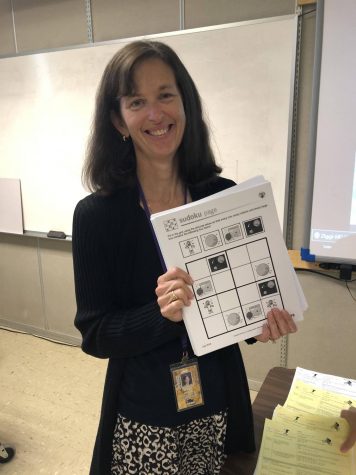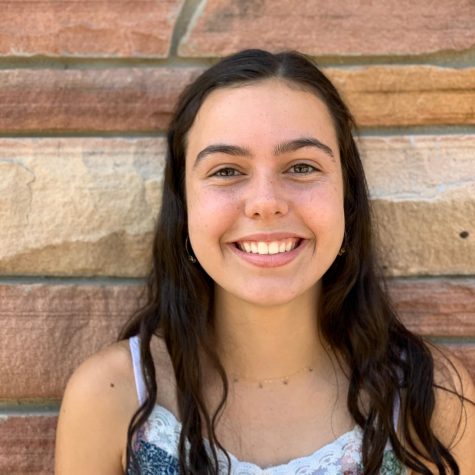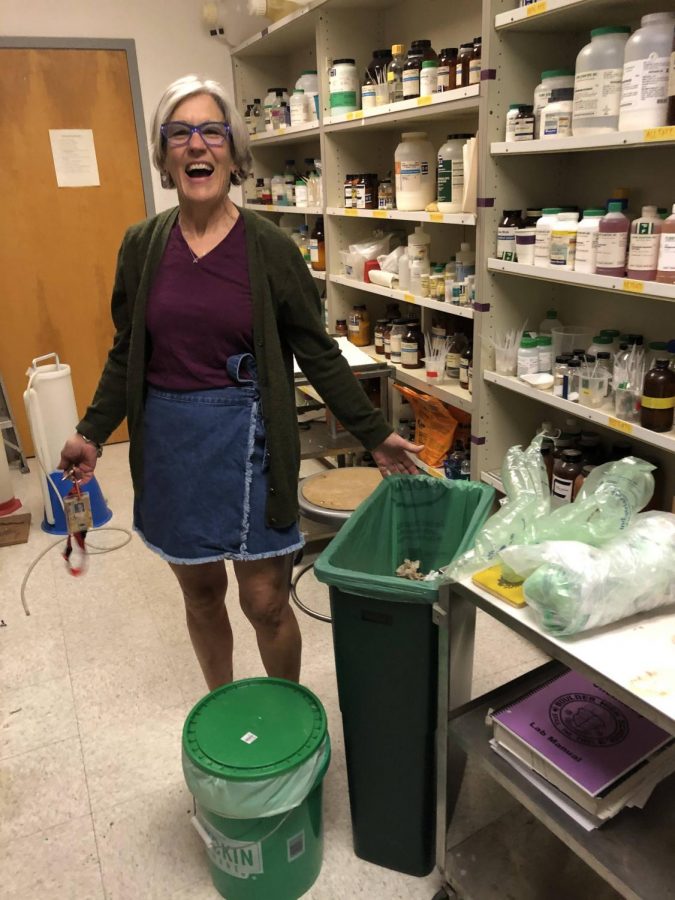Champions of Change
BHS teachers’ contribution to conservation
Dr. Duncan goes above and beyond the call of duty when it comes to recycling and composting. Not only does she make sure to dispose of her own waste properly—she also ensures that the rest of the school’s waste is processed correctly.
In light of the recent climate strikes, environmental preservation burns in all of our minds. The forests are flaming, global temperatures are scorching, and Swedish teen activist Greta Thunburg is spitting fiery truths about our collective need to act.
A group of Boulder High teachers recognizes this need to act against environmental waste, and they are leading the charge in small yet meaningful ways. Ms. Speckl, a geometry and calculus teacher here at BHS, is a quiet but mighty conservationist. The excess of unused handouts at our school is a pet peeve of Ms. Speckl’s, and she counteracts this wastefulness with a simple solution; Ms. Speckl collects the extra papers from teachers in all departments, and prints her one-sided handouts on the back of those. She recently declared to her first period AP Calculus BC class, “After you do your quiz and turn it in, I’ll run it back through the printer and use the other side. I’m gonna find a way!”

Ms. Speckl is not alone in this journey. Mr. Wright, a BHS English teacher, also values conserving paper. However, instead of reusing it like Ms. Speckl, he has decided to move away from paper almost completely, instead using electronic documents. Even though language arts is a class that demands the use of paper to write essays, students in his class often write their essays online. Mr. Wright posts his agenda on his personal website, with links to documents that would have otherwise been printed out. He acknowledges that in this technology-driven world, the majority of students appreciate his online forum because it’s more easily accessible.
Within the science department, Dr. Duncan goes above and beyond. She composts all of the paper towels and other compostable materials her students use in their chemistry labs and makes sure to process even the allegedly non-reducible, reusable or recyclable materials. Dr. Duncan explained that she goes to CHaRM (the Eco-Cycle Center for Hard-to-Recycle Materials) “at least twice a year to drop off our waste.” Not just her waste, our waste. She understands that this is a communal effort and that we all have to pitch in in order to create a lasting impact to better our earth.
If more teachers and students lead by these examples, Boulder High will slowly but surely lessen its environmental footprint.
Use your own water bottle instead of buying a plastic one; take the bus, bike, or carpool to school; never litter and instead be attentive to the different colored bins around BHS meant for recycled and compostable materials; use as much of every sheet of paper as possible; pack your lunch in reusable containers…all of these are small changes to our lifestyle that can create lasting change in our school culture. Draw inspiration from the champions of change within our teaching staff who inspire the question: what are some things you could do to help the environment?

Grace Schwab is a senior this year and a staff writer for The Owl. Writing is a constant source of joy for Grace. She joined the newspaper because while she has always loved creative writing, she wanted to see the more journalistic side of it. This will be Grace’s second year on staff, and she couldn’t be more excited. She hopes to improve her ability to write about a variety of topics and better her interviewing skills throughout the year. Grace is in her senior season of cross country at Boulder High and will be serving as a captain. When she’s not out on a run, she can be found biking (exclusively on a tandem), eating (sometimes with chopsticks because that’s one of her hidden talents),...


